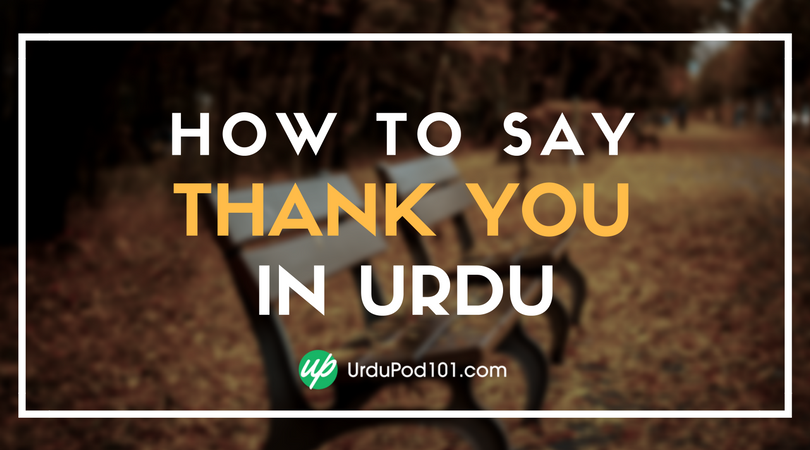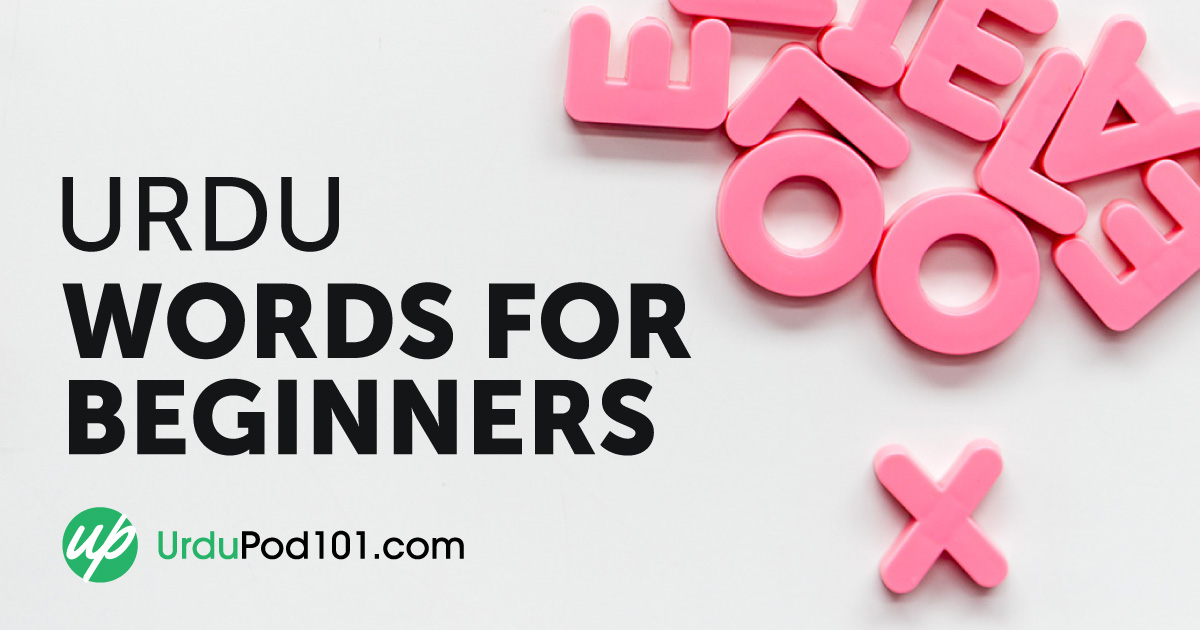
Did you know that the Urdu language contains over 264,000 words?
As a beginner in Urdu, you might find that number intimidating. But don’t fret! Even native Urdu speakers know and use only a fraction of these words.
The most important thing at this stage of your learning journey is that you pick up the essentials. If you’re not sure where to start, this list of basic Urdu words for beginners is a solid option. We’ve hand-picked the words here to reflect what you’re most likely to hear and find use for while in Pakistan.
Whether you’re studying, working, or just exploring this beautiful country, memorizing these words will help you find acceptability among native speakers. You’ll also gain more confidence in your language ability as you begin using these words on a daily basis and learn how to form your own sentences.
Let’s get started, shall we?
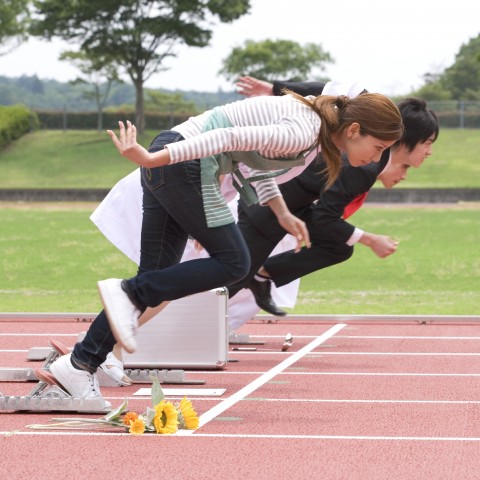
 Table of Contents
Table of Contents
1. Pronouns
It’s a good idea to memorize the pronouns early on. This will allow you to talk about yourself, others, objects, places, and more—even if you’re struggling to remember a name or a specific word.
Personal Pronouns
Let’s have a look at the must-know personal pronouns in Urdu. To get deeper insight on the topic, don’t forget to visit our article about Urdu pronouns on UrduPod101.com.
- میں (mei) – I
- ہم (hum) – we
- آپ (aap) – you [formal]
- تم (tum) – you [informal]
- وہ (woh) – he / she
- ہم (hum) – we
- وہ (woh) – they
Impersonal Pronoun
In the Urdu language, we have one impersonal pronoun: یہ (yeh). This word is used to refer to an unclear subject.
- یہ (yeh) – it
Interrogative Pronouns
These pronouns are used to ask questions, so learning them early on will definitely prove useful.
- کون (kon) – who
- کہاں (kahan) – where
- کب (kab) – when
- کیا (kia) – what
- کیوں (kyun) – why
- کون سا (kaun sa) – which
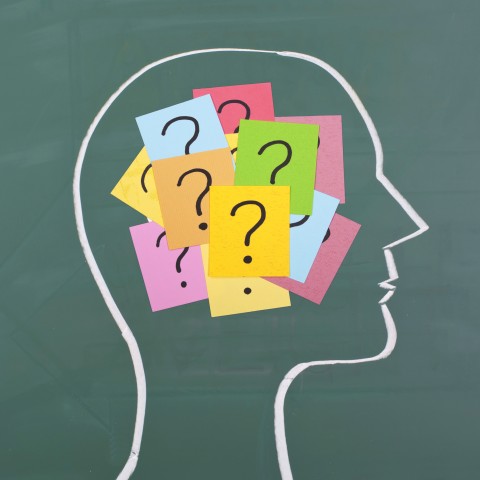
Indefinite Pronouns
We use indefinite pronouns to refer to unspecified people, objects, places, etc. Here are the most frequently used ones in Urdu:
- کوئی (koi) – somebody
- کوئی نہیں (koi nahin) – nobody
- ہر کوئی (har koi) – everybody
- کوئی بھی (koi bhi) – anyone / anybody
- کچھ چیز (kuch cheez) – something
- کچھ نہیں (kuch nahin) – nothing
- هر چیز (har cheez) – everything
2. Numbers
There are numerous real-life situations where numbers do matter. This is why Urdu beginners should make sure to memorize the basic numbers as soon as possible. To give you a headstart, here are the numbers 0-10 in Urdu:
- صفر (sifar) – zero
- ایک (aik) – one
- دو (dou) – two
- تین (teen) – three
- چار (chaar) – four
- پانچ (paanch) – five
- چھ (chey) – six
- سات (saath) – seven
- آٹھ (aat) – eight
- نو (nau) – nine
- دس (dus) – ten
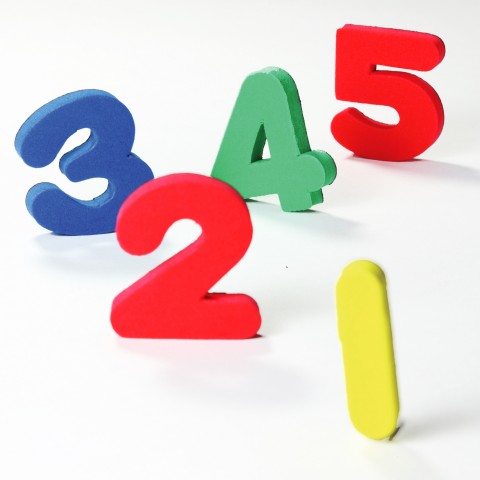
3. Nouns
Before heading to our list, keep in mind that every noun in Urdu has a grammatical gender assigned to it. When you’re ready, you can learn more about this and pick up additional nouns in our dedicated article on UrduPod101.com. For now, though, let’s just look at the most useful Urdu nouns for beginners.
Time
- ایک گھنٹہ (aik ghanta) – one hour
- ایک منٹ (aik minute) – one minute
- ایک دن (aik din) – one day
- ایک سال (aik saal) – one year
- ایک مہینہ (aik mahina) – one month
- ایک سیکنڈ (aik second) – one second
- ایک ہفتہ (aik hafta) – one week
- ایک صدی (aik sadi) – one century
- صبح (subah) – morning
- دوپہر (dopahar) – noon
- سہ پہر (sepehar) – afternoon
- شام (shaam) – evening
- رات (raat) – night
It will also be useful to know the days of the week in Urdu:
- پیر (peer) – Monday
- منگل (mangal) – Tuesday
- بدھ (budh) – Wednesday
- جمعرات (jumeraat) – Thursday
- جمعہ (jummah) – Friday
- ہفتہ (haftah) – Saturday
- اتوار (itwar) – Sunday
People
- والد (walid) – father
- والدہ (walidah) – mother
- باپ (baap) – father
- ماں (maa) – mother
- مرد (mard) – man
- عورت (aurat) – woman
- شوہر (shoher) – husband
- بیوی (bivi) – wife
- خاندان (khandan) – family
- بہن (behan) – sister
- بھائی (bhai) – brother
- بیٹی (beti) – daughter
- بیٹا (beta) – son
- دوست (dost) – friend
Places
- دنیا (dunya) – world
- ملک (mulk) – country
- جگہ (jagah) – place
- دکان (dukan) – shop
- شہر (shehar) – city
- گاؤں (gaon) – village
- جنگل (jungle) – jungle
- پہاڑ (pahar) – mountain
- سمندر (samundar) – sea
School
- طالبِ علم (talib-e-ilm) – student
- سکول (school) – school
- استاد (ustaad) – teacher
- کتاب (kitab) – book
- بستہ (bastah) – bag
- قلم (qalam) – pen
- پڑھائی (parhai) – study
- تعلیم (taleem) – education
- سیاہی (siyahi) – ink
- دوات (dawaat) – inkpot
- کاغذ (kaghaz) – paper
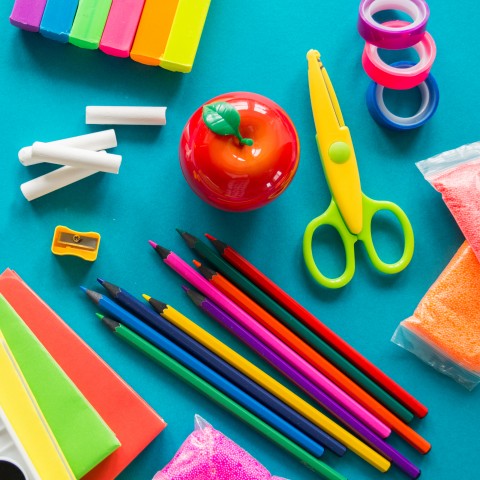
Body Parts
- جسم (jism) – body
- سر (sir) – head
- بال (baal) – hair
- کان (kaan) – ear
- پیشانی (paishani) – forehead
- آنکھیں (aankhain) – eyes
- ہونٹ (hont) – lips
- ٹھوڑی (torhi) – chin
- گردن (gardan) – neck
- سینہ (seena) – chest
- بازو (bazoo) – arm
- ہاتھ (haath) – hands
- انگلیاں (unglian) – fingers
- ناک (naak) – nose
- ٹانگیں (taangain) – legs
- پاؤں (paon) – foot
- گال (gaal) – cheek
- کلائی (kalai) – wrist
- ہتھیلی (hatheli) – palm
- ناخن (nakhun) – nail
- ہڈی (haddi) – bone
- کندها (kandha) – shoulder
- کہنی (kohni) – elbow
- پیٹ (pait) – belly
- دل (dil) – heart
- جگر (jigar) – liver
- زبان (zuban) – tongue
- گلا (gala) – throat
- ران (raan) – thigh
- گھٹنا (ghutna) – knee
- پنڈلی (paindli) – shin
- ٹخنہ (takhnah) – ankle

Food & Dining
- پھل (phal) – fruits
- سبزیاں (sabzian) – vegetables
- میز (maiz) – table
- کھانا (khana) – food
- پانی (paani) – water
- چائے (chai) – tea
- گلاس (glass) – glass
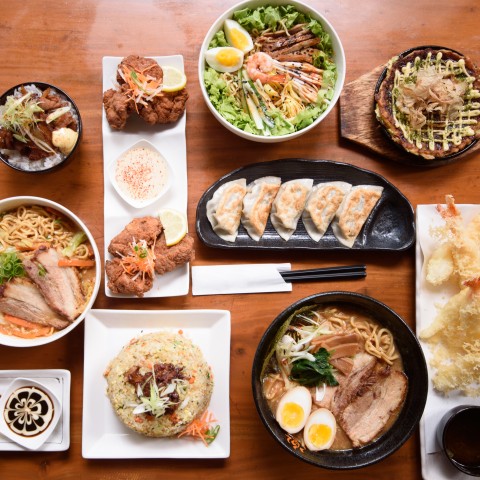
4. Verbs
Verbs are another essential category of words in Urdu for beginners. These words describe actions or states of being, which are a key component of every sentence.
Below, you’ll find a list of some frequently used Urdu verbs. But if you’d like to learn even more, make sure to check out our comprehensive articles on Urdu verbs and verb conjugation!
- کرنا (karna) – to do
- کھانا (khana) – to eat
- سونا (sona) – to sleep
- جاگنا (jagna) – to wake up
- بولنا (bolna) – to speak
- محبت کرنا (mohabbat karna) – to love
- پسند کرنا (pasand karna) – to like
- نفرت کرنا (nafrat karna) – to hate
- دینا (dena) – to give
- لینا (lena) – to take
- سننا (sun-na) – to hear
- دیکھنا (daikhna) – to see
- دوڑنا (dorna) – to run
- رونا (rona) – to cry
- لڑنا (larna) – to fight
- گانا (gana) – to sing
- کھیلنا (khailna) – to play
- پڑھنا (parhna) – to read
- کھڑا ہونا (khara hona) – to stand
- بیٹھنا (baithna) – to sit
- سوار ہونا (sawar hona) – to ride
- بند کرنا (band karna) – to close / to switch off
- کھولنا (kholna) – to open
- چلانا (chalana) – to turn on
- جیتنا (jeetna) – to win
- ہارنا (harna) – to lose
- لکھنا (likhna) – to write
- پکانا (pakana) – to cook
- دھونا (dhona) – to wash
- دینا (dena) – to give
- لینا (lena) – to take
- انتظار کرنا (intezar karna) – to wait
- کودنا (koodna) – to jump
- بات کرنا (baat karna) – to talk
- چومنا (choomna) – to kiss
- گلے ملنا (galay milna) – to hug
- نہانا (nahana) – to bathe
- خریدنا (khareedna) – to buy
- بیچنا (bechna) – to sell
- سونگھنا (soonghna) – to smell
- تالی بجانا (taali bajana) – to clap
- بننا (bun-na) – to knit
- سینا (seena) – to sew
- دھکیلنا (dhakelna) – to push
- کھینچنا (khenchna) – to pull
- چڑھنا (charhna) – to climb
- کھودنا (khodna) – to dig
- جھکنا (jhukna) – to bow
- غوطہ لگانا (ghota lagana) – to dive
5. Adjectives
Now let’s go over a list of some highly useful Urdu adjectives for the beginner’s level. You’ll find them quite helpful in describing the world around you and better expressing yourself. Nonetheless, if you feel ready to learn even more adjectives, we recommend you visit this lesson on Urdu adjectives at UrduPod101.com.
- نیا (naya) – new
- پرانا (purana) – old
- اچھا (acha) – good
- برا (bura) – bad
- مشکل (mushkil) – difficult
- آسان (aasan) – easy
- لمبا (lamba) – long
- چھوٹا (chota) – small
- میٹھا (meetha) – sweet
- کڑوا (kerwa) – bitter
- درست (darust) – correct
- ٹھیک (theek) – right
- غلط (ghalat) – wrong
- موٹا (mota) – fat
- پتلا (patla) – thin
- تیز (taiz) – fast
- سُست (sust) – lazy
- گرم (garam) – hot
- ٹھنڈا (thanda) – cold
- پہلا (pehla) – first
- آخری (aakhri) – last
- خوبصورت (khoobsurat) – beautiful
- بدصورت (badsurat) – ugly
- خوش (khush) – happy
- ناراض (naraz) – angry
- سفید (sufaid) – white
- کالا (kala) – black
6. Conjunctions
Since conjunctions are an integral part of Urdu grammar, we just had to include some of them here:
- اور (aur) – and
- یا (ya) – or
- کیونکہ (kyunke) – because
- لیکن (lekin) – but
- اگر (agar) – if
- تو (tou) – so
- اسی لئے (issi liye) – therefore
7. Others
Here are some Urdu auxiliary verbs that you should learn, regardless of your current proficiency level. Beginners and advanced learners alike must know and remember them, as they can make your speech or writing sound much more fluent and organized.
- سکنا (sakna) – can
- چاہئے (chahiye) – should
- ضرور چاہئے (zaroor chahiye) – must
- گا / گی / گے (ga / gi / gay) – will / shall
- پڑنا (perna) – have to, etc.
8. Conclusion
This article has familiarized you with the most useful Urdu beginner words, from pronouns to auxiliaries. These words will prove useful in day-to-day life during your time in Pakistan, and they’ll serve as a solid base upon which to build your Urdu language skills.
If you found this list a bit overwhelming, it’s nothing to become discouraged about! Acquiring a language takes time, and UrduPod101 will be here to help every step of the way.
Let us know if you have any questions or concerns about the words covered in this article (or if you think we’re missing any important ones). We’ll be glad to help you out!
If you’re serious about your studies, make sure to frequently visit UrduPod101.com. We provide the most convenient way to learn Urdu online, offering a variety of quality materials: vocabulary lists, an Urdu dictionary, audio and video lessons, grammar and pronunciation tips, and much more. We recommend checking out our series of Urdu lessons for beginners to get your foot in the door.
Create your free lifetime account to get started.
Very Happy Urdu Learning!



